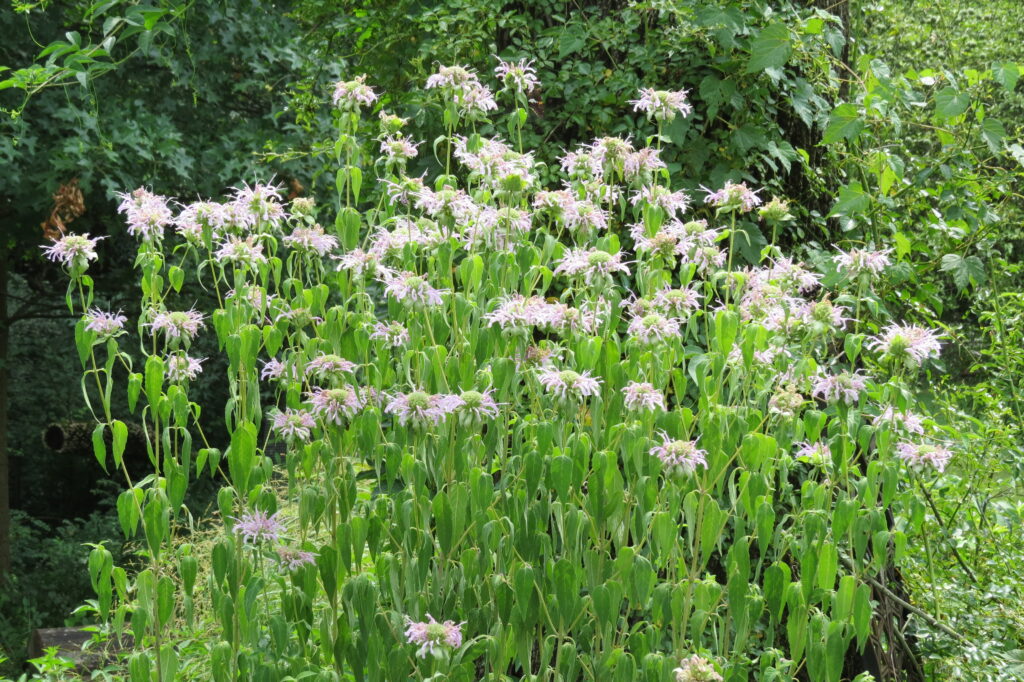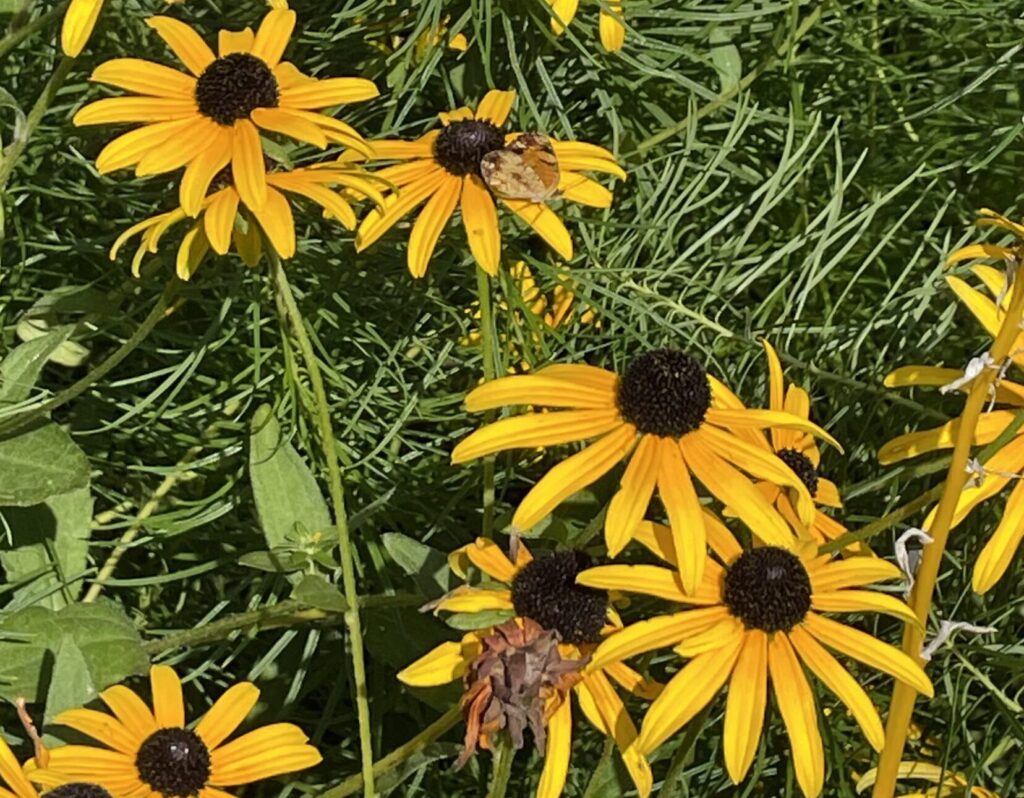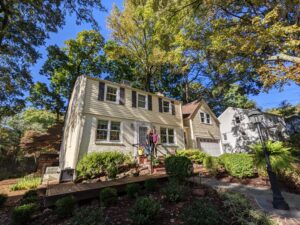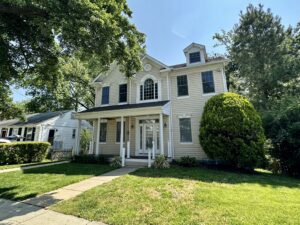Spring is in the air. Temperatures are rising. Flowers are blooming. And all that is great, but let’s be honest, no one likes the outdoor chores—mowing, watering, and weeding—which, if you’re like me, make your eyes water and nose tingle, as well as taking time better spent napping or visiting with friends.
We have a recommendation to make gardening a breeze: plant native species.
Native trees, shrubs and perennials provide much greater benefits to the environment than non-native species: Durable to our weather patterns and a food source to pollinators and other desirable insects and critters, native plant species can take some of the work out of gardening, especially when done in conjunction with reduction or elimination of lawn areas.
You don’t need to hire a landscaper to do this! Trust me, I’ve done the work in my own yard, working plot by plot over a number of years. And I’m here to share some tips to get you started.
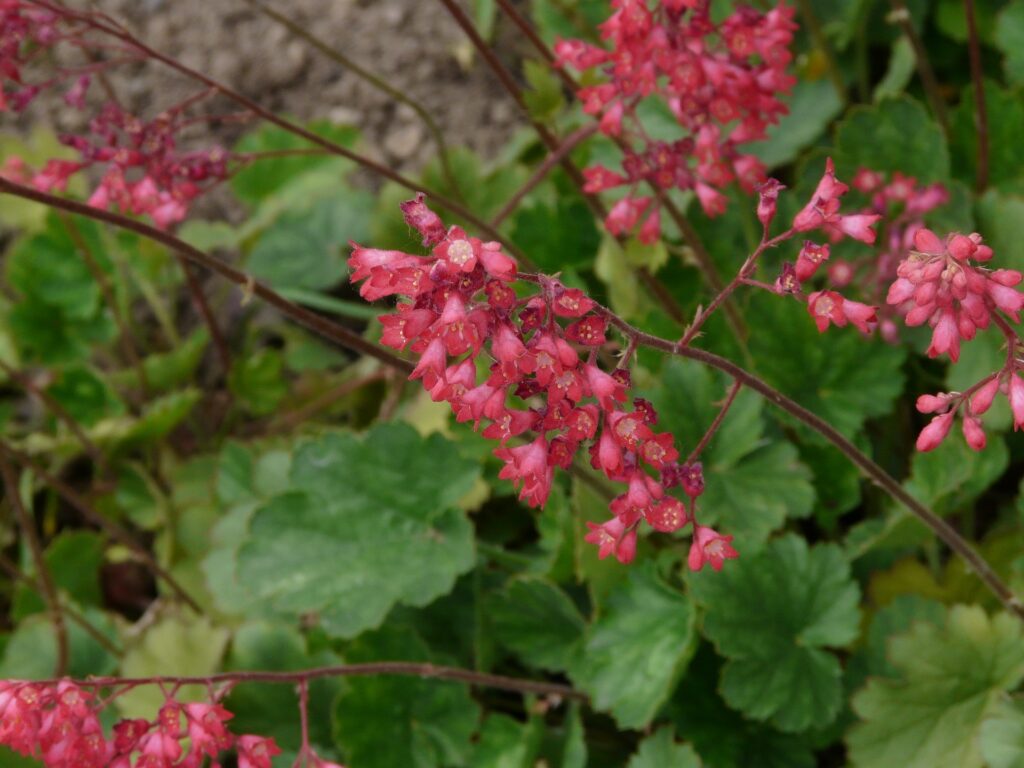
In your shady plots, instead of hostas, which I didn’t know weren’t native given their prevalence in the area, plant coral bells (Heuchera sanguinea). To attract butterflies, instead of the misleadingly named butterfly bush, plant joe pye weed (Eupatorium machulatum) or sweet pepperbush (Clethra alnifolia). Black-Eyed Susans thrive in the Mid-Atlantic and both attract bees, birds and butterflies AND propagate quickly and easily. For beautiful groundcover, instead of English ivy, which can choke out other plants, including mature trees, try coral honeysuckle (Lonicera sepervirens).
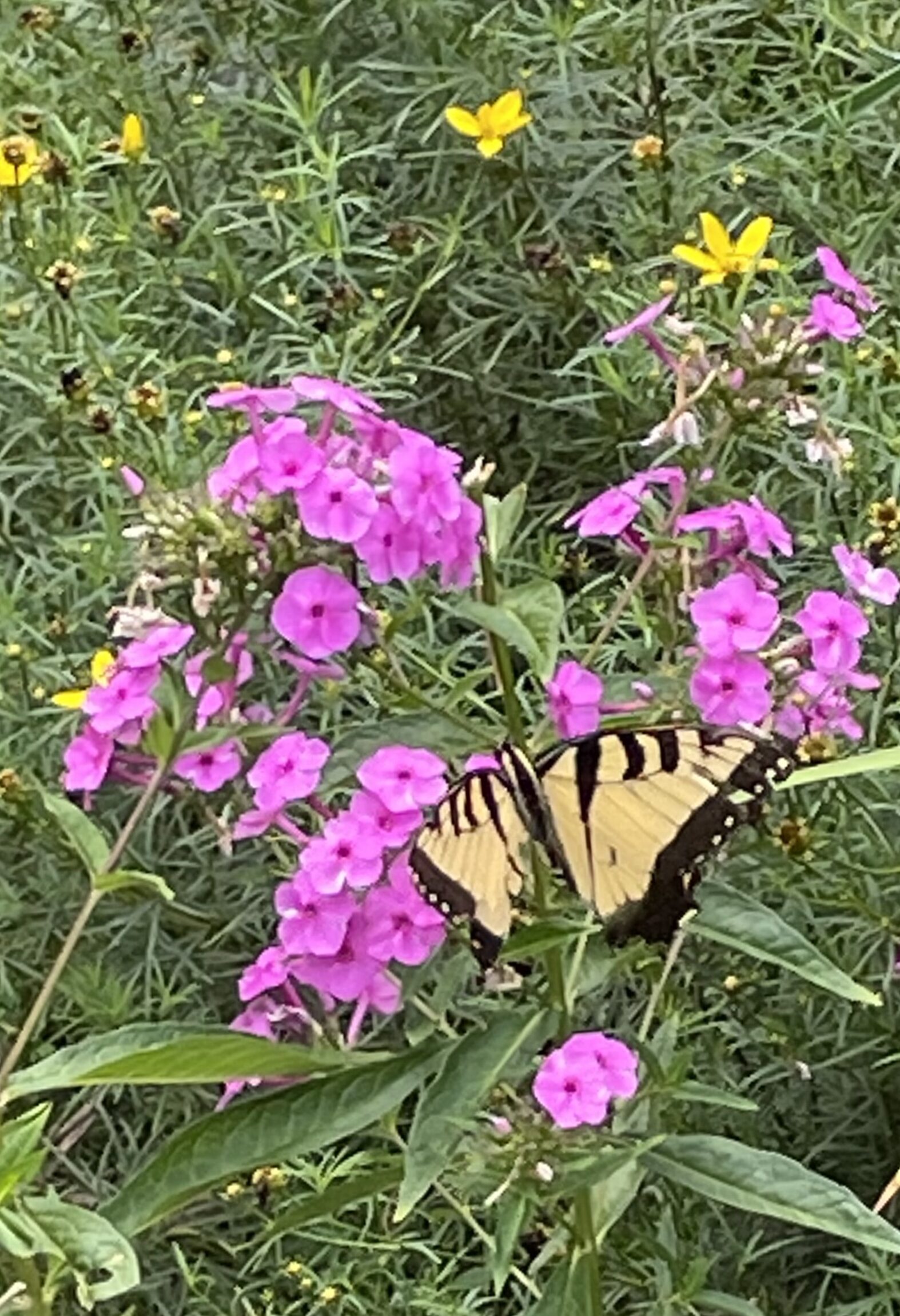
Other yard tips:
- Give your garden structure by planting a combination of heights, textures, and bloom cycles so that your yard has something for every critter. Groundcover, shrubs, trees of varying heights add interest and provide habitat. (If I can do it, so can you!)
- Check with your local municipality to see if they offer free trees. In Cheverly, where I live, you can request up to two trees, which public works plants, each spring and fall, a fantastic and underutilized benefit.
- Check out the “we plan, you plant” program at Merrifield Garden Center, which for a small fee will provide you with a customized garden roadmap to work from.
Don’t @ me, but please stop using so-called mosquito-cides, which contrary to misleading advertising, do not just kill mosquitos but also harm pollinators, butterflies, lady bugs, worms, and are even unsafe for pets. (I’m happy to provide you with more info on this if you’d like to take the deep dive I have.) Mosquitos breed in standing water. You can reduce the mosquitos in your yard by keeping gutters clean and eliminating vessels for standing water (kid toys, empty planters, corrugated pipes for drainage, patio furniture, etc). Use mosquito dunks, which are inexpensive and safe, more effectively kill mosquitoes at the larval stage whereas spraying only kills adults.
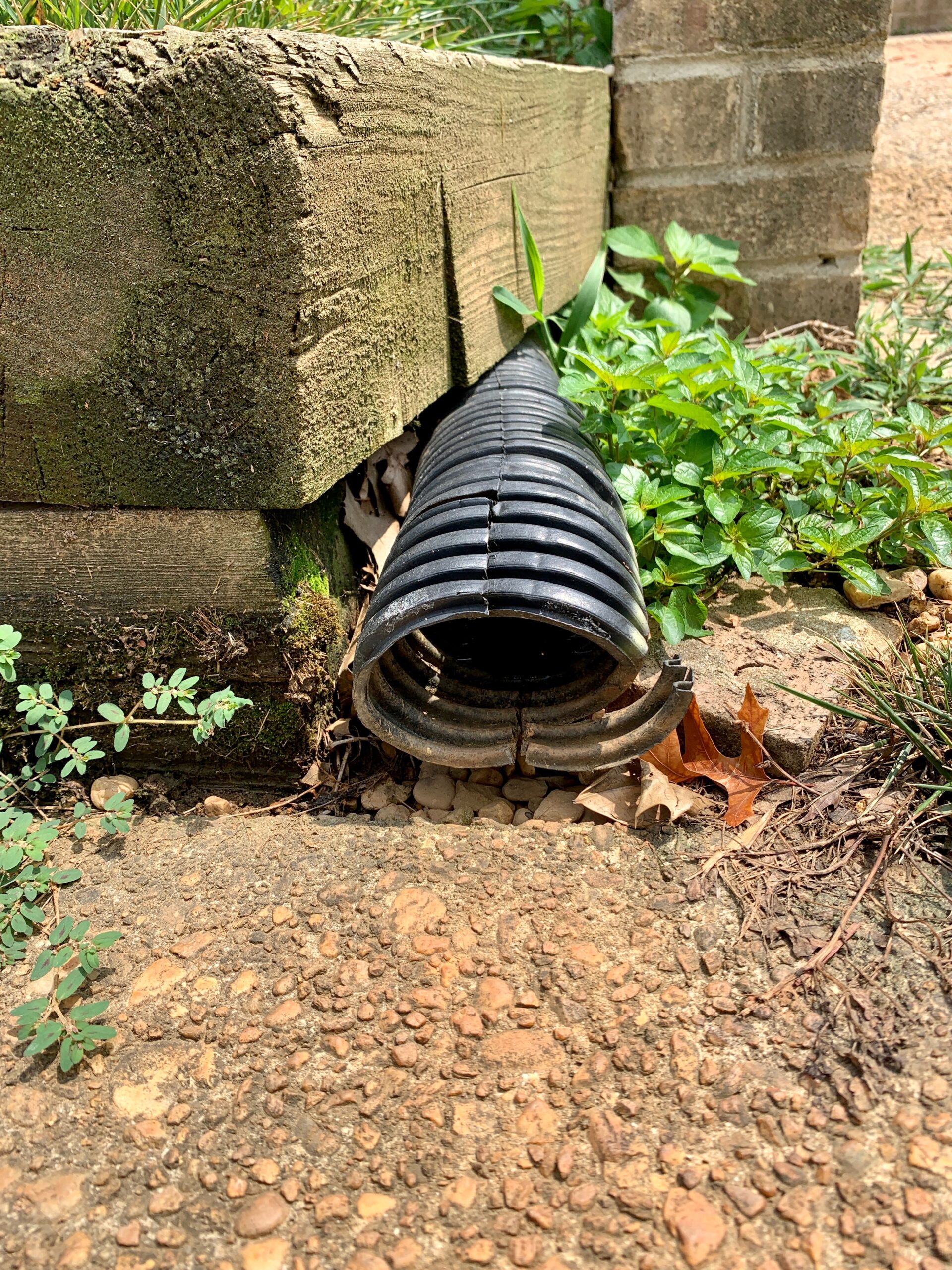
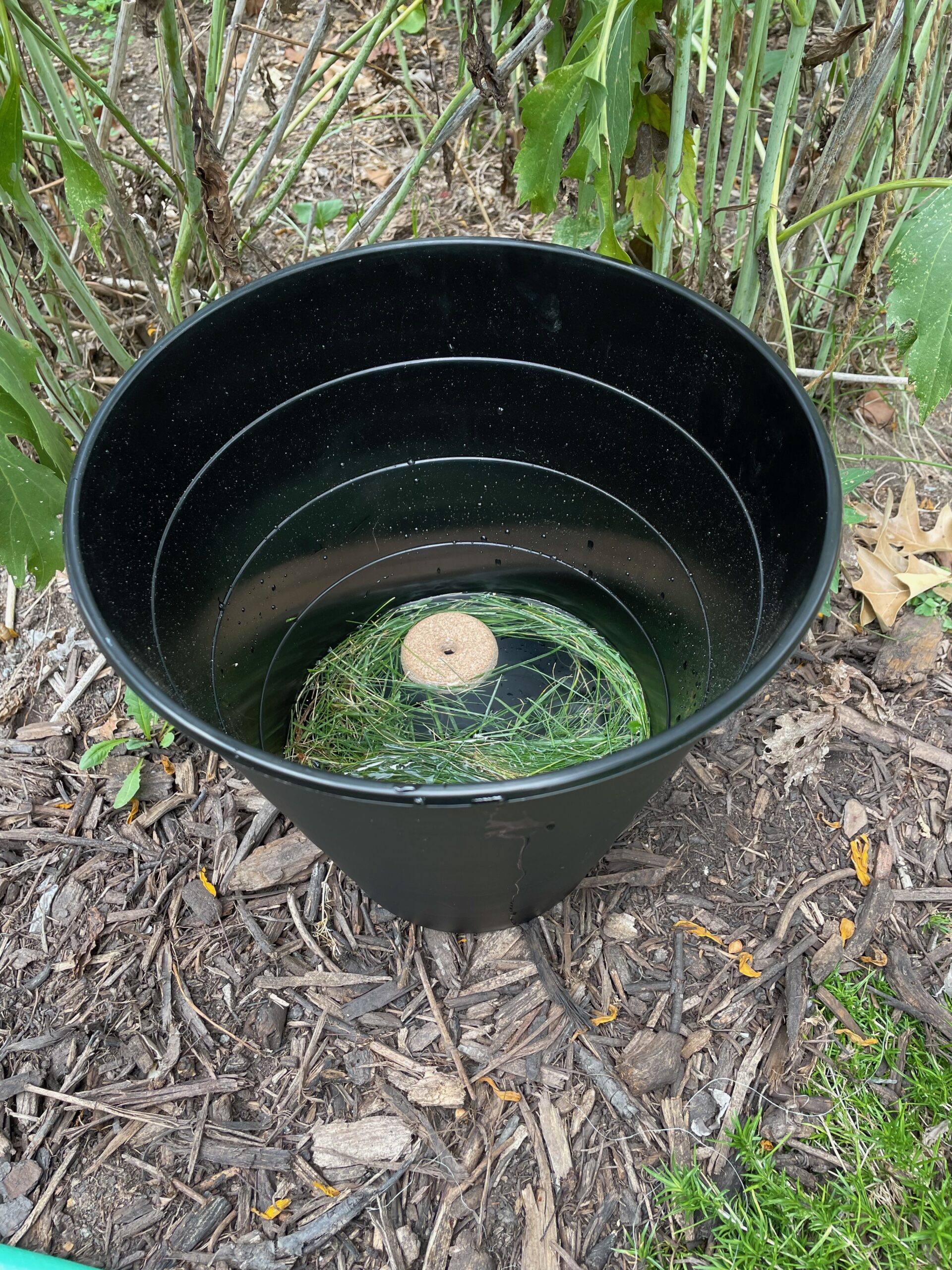
As always, hit us up with any questions–or tips you’d like to share!
Have a happy sneeze-free Spring!
